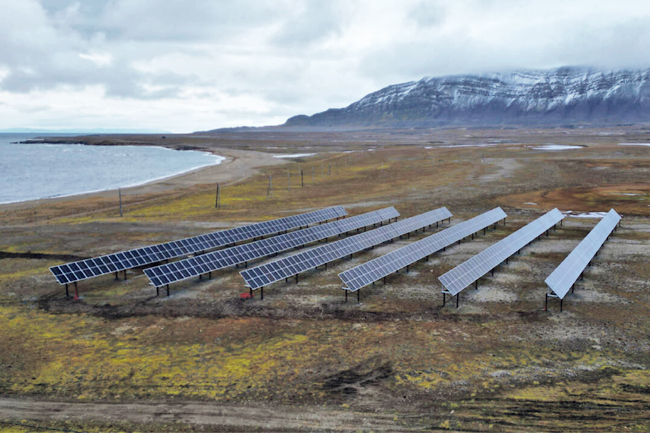AFP – Companies are raring to explore the Arctic seabed off Norway, which could become the first country in Europe to allow deep-sea mining – much to the dismay of environmentalists.
The industry has already suffered a false start.
Norway’s Parliament had voted massively in favour of deep-sea mining, experts had concluded there were significant resources to be extracted, and start-ups drawing on more than 50 years of offshore oil and gas experience were keen to begin operations.
But then came a surprising turn of events.
In December, Norway’s government backpedalled on plans to award the first exploration licences in 2025, part of a compromise with a left-wing party in order to pass its budget through Parliament.
“It was of course a surprise and disappointment… that a small party could take over the budget negotiations and succeed in blocking something that Parliament really wants,” said managing director of the start-up Adepth Anette Broch Mathisen Tvedt.
Prime Minister Jonas Gahr Store insisted it was simply a delay, not a change of heart.
The first licences are now due to be awarded in 2026, in the Greenland Sea and the Norwegian Sea.
But the change of timeline had major repercussions for industry players, usually small companies made up of an entrepreneur and a handful of geologists or geophysicists.
Loke Marine Minerals, which had hopes of becoming a world leader, declared bankruptcy last week. Its rival, Green Minerals, has had to cut costs by 80 per cent.
“We are as ready now as before to be awarded licences on the Norwegian continental shelf. We will be around for many years,” Green Minerals chief executive Oivind Dahl-Stamnes insisted.
Those in favour see deep-sea mining as a way of obtaining minerals and metals needed for the transition to green energy, and reducing dependence on China, which dominates the market by a big margin.
“If we continue to have minerals supplied the way they are today, then it’s clear that the green transition will not be very green,” Mathisen Tvedt argued.
Norway stands out in Europe, where countries like France, Germany and Britain are reticent or even categorically opposed to deep-sea mining.
Norway’s seabed is believed to hold “substantial” resources, including 38 million tonnes of copper and 45 million tonnes of zinc, as well as “significant” volumes of rare earth minerals, according to an official evaluation published in 2023.



